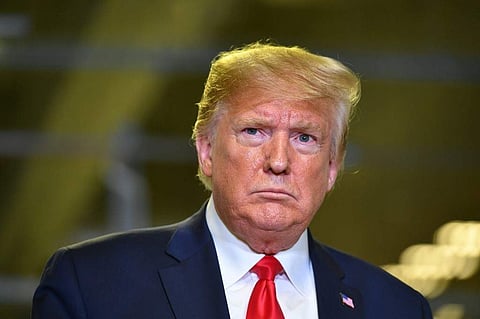

India’s equity market is experiencing high volatility in the run-up to the closely contested Presidential elections in the United States. The local benchmarks saw a sharp correction on Monday as the street at large believes that a win by Republican candidate and former President Donald Trump will have more negatives for emerging markets (EMs), including India, than positives.
A win by the current vice president and Democratic Party candidate Kamala Harris is mostly deemed favourable for markets as this would mean continuity of existing policies.
“In case, Democrats return to power, the impact on the global economy, including India, is expected to be minimal as the status quo will continue. However, if Republicans assume power (Trump), we expect the resumption of trade wars led by an increase in tariffs,” said Nitin Aggarwal, Director of Investment Research and Advisory at Client Associates.
American voters went to the polls on Tuesday. While election results are sometimes announced within hours of the polls closing, it might take days this year to decide the winner due to the tight contest.
Aggarwal added that the foremost promise of Trump's presidency has been to reduce the trade deficit burden by levying taxes on goods and services being imported into the US. However, the imposition of tariffs is a double-edged sword as these tariffs might help reduce the trade deficit but will aid inflation on the upside as imported goods will become expensive. An increase in inflation might also delay the rate cut by the Federal Reserve.
“Suppose interest rate cuts are delayed in the US. In that case, FPI’s flows into India might further dry up (there is a negative correlation between FPI flows towards emerging economies and interest rates. Lower the interest rates, the higher the inflows towards EMs),” said Aggarwal.
A further outflow by FIIs can have a major impact on the Indian market given they pulled out Rs 1.15 lakh crore from the secondary market in October. This outflow led to an 8% fall in benchmarks last month.
Analysts also believe that Trump’s win would lead to a rise in bond market yields, particularly the 10-year Treasury. A stronger US bond yield can further exacerbate the capital outflows from emerging markets, including India.
“The Trump card, coupled with potential Republican control, could shoot higher yields due to anticipated increases in deficit spending, inflation risks, and potential tax cuts. This could very well jiggle the confidence in U.S. Treasuries and thus start a chain effect that will possibly be impacting global market stability and leading to short-term volatility,” said Shrisha Acharya, Vice President, Anand Rathi Global Finance.
However, Emkay Global believes that the Indian equity markets may see a rebound if Trump wins the election. The domestic brokerage believes that China equities would bleed in this scenario due to increased market uncertainty and it could also be tactically positive for India on the FPI positioning and flows front.
Emkay also said that a Democratic party sweep could trigger a fresh wave of selling, and a significant correction from here (5%+) should be bought into, but the impact on the Indian economy and markets would be marginal.
“Equity markets may temporarily rejoice the spillover of US equities rebound in case of a Red sweep. However, there will be challenges sustaining that rally globally, and domestically as well. Our equity strategy team believes that a Red sweep would probably trigger a short-term rally but its sustenance depends on earnings momentum and valuations, both of which are weak...The medium-term play for India may not differ in either a Democratic or Republican regime,” said analysts at Emkay.
Indian equity indices ended on a strong note on Tuesday with the Nifty above 24,200 on November 5. At close, the Sensex was up 694.39 points or 0.88% at 79,476.63, and the Nifty was up 218 points or 0.91% at 24,213.30.
Despite the gain, the two benchmarks are still down about 8% from their respective all-time high levels seen in late September.